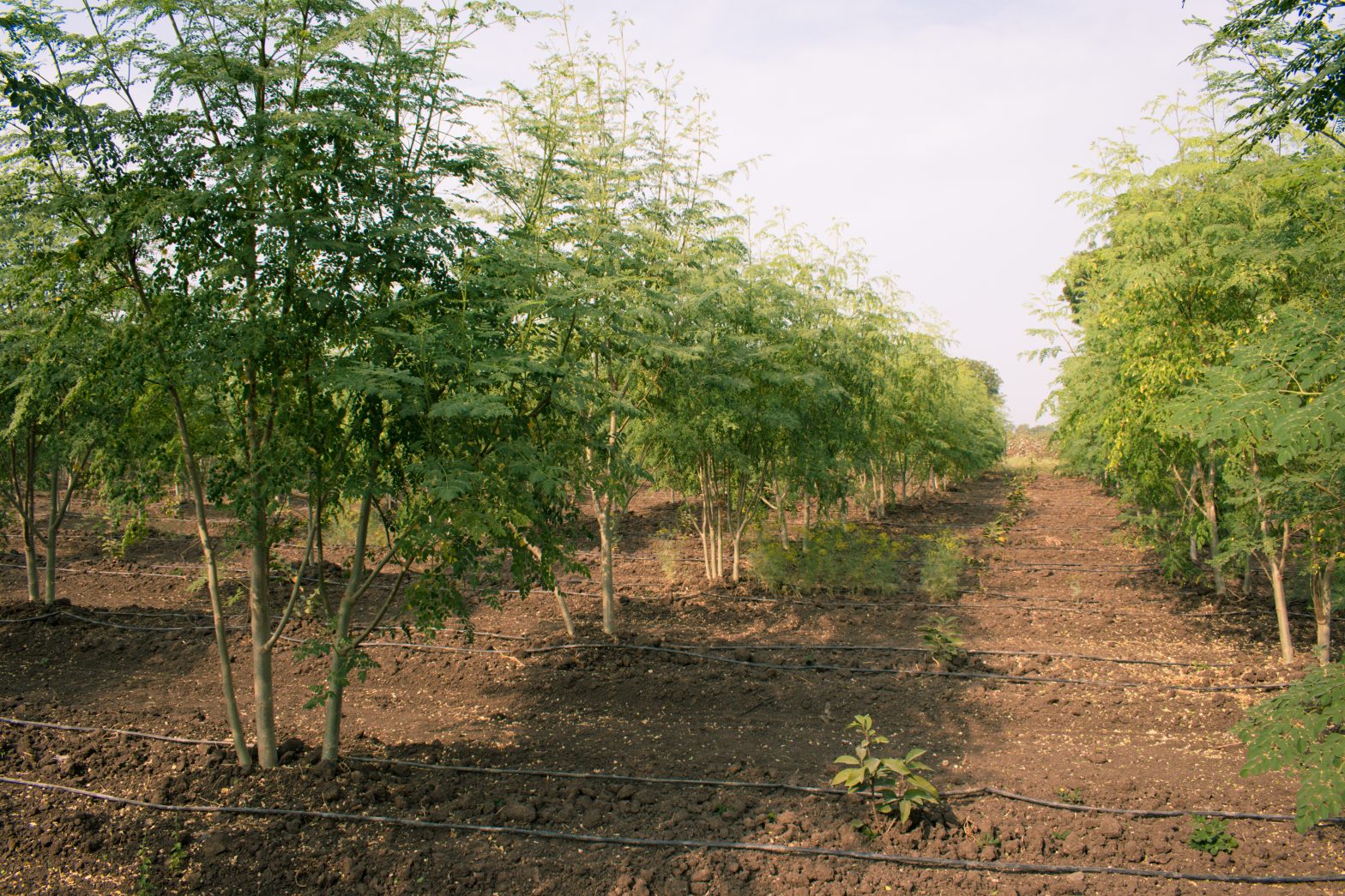KUPANDA : CSR Commitment and Traceability for a Responsible Beauty
November 9th 2023

In this exclusive interview with KUPANDA, a trusted supplier of Summit Cosmetics Europe, we delve into their profound commitment to Corporate Social Responsibility (CSR) and sustainability. This conversation offers valuable insights into KUPANDA’s ethos and practices, as well as the remarkable impact of their approach on the cosmetics industry. KUPANDA’s dedication to the sustainable triple-bottom line, their focus on sourcing raw materials in underprivileged communities, and their innovative projects in economic engagement, social upliftment, and environmental regeneration exemplify their mission to create positive change. This interview sheds light on KUPANDA’s CSR Strategy, demonstrating how responsible business practices can pave the way for a more ethical and sustainable future in the world of cosmetics.
Can you explain KUPANDA’s approach to CSR and how it connects with your business activities?
We have an underlying philosophy called ‘The KUPANDA Way’, which governs the way in which KUPANDA conducts its activities. The KUPANDA Way aligns to the principle of sustainable triple-bottom line: people, planet, and profit. Without the right balance between these three aspects – especially in Africa, KUPANDA would cease to exist.
The core component of KUPANDA’s CSR agenda lies on the African raw material sourcing side of our business, where we work with communities who reside in rural and underprivileged regional locations. Typically, income levels in this part of the world are less than $100 per month.

In this context, we use the term ‘impact’, which provides a broader view of our perpetual engagement with communities, across 3 core pillars:
- Economic Engagement – KUPANDA works with 7,000 wild harvest collectors and small-holder farmers across 6 different African countries. 97% of the collector/harvester community are women, who collect or grow the fruits to then sell us the seeds – for example, Kalahari melon seeds – that are used as inputs into our product range. These communities are a key part of our supply chain; therefore, they directly benefit when KUPANDA’s ingredients are approved by our cosmetics customers.
- Social Upliftment – projects that bring benefits to the community more broadly, such as medical clinics, education initiatives or during natural disasters.
- Environmental Regeneration – projects which seek to rejuvenate barren land, improve, or expand community-level agricultural practices, and assist in the provision of water.
Could you share examples of specific impact projects, and how do you measure the project’s success? How do these projects have a significant effect on your product supply chain?
Examples of community-orientated social upliftment and environmental regeneration projects that we have delivered include:
- Implementing three water boreholes in our moringa seed collection districts of Malawi
- Providing medical clinics with personal protective equipment (PPE), hand sanitizer, and other medical supplies during covid, in multiple African geographies
- Also last year, we launched the pilot stage of a two-year project in Zimbabwe to regenerate land in a district of western Zimbabwe using natural fertilizers. The desired outcome is that the rejuvenated land can be used to grow multiple crops, such as beans, cabbage, and maize, for consumption and to earn an income.

In these examples, success is measured across three dimensions. Firstly, in terms of the timeliness to deliver the project and quality of the deliverables. For example, there’s no point installing a water borehole, if it doesn’t work, or requires constant repairs. Secondly, we seek to maximize the number of community beneficiaries from the project.
Also, we want the project to have a long-lasting, rather than short-term, effect on communities.
The fundamental goal of any impact is to provide benevolence to community groups. Thereafter, if there are benefits to our supply chain, then we are also pleased. Our experience, however, is that upliftment and regeneration projects assist in binding communities and KUPANDA into a long-term and trustworthy relationship.
Can you explain how sustainability features in the production of your oil and exfoliant products, and what are the primary measures you’ve taken to ensure their sustainability and minimal environmental impact?

KUPANDA is committed to ethical behaviour and a genuine desire to make a positive contribution to society – after all, the word ‘KUPANDA’ means to rise, to climb or escalate, in Swahili.
At an employee level, KUPANDA is a place of learning, growth, and enrichment. We operate flexible working hours and locations, we encourage workplace diversity, and our family-orientation approach towards staff well-being leads to happy and confident colleagues, who are committed to seeing KUPANDA grow as a business.
Importantly, we recognize that KUPANDA does not operate in isolation; rather, we work very closely with our ecosystem of ‘like-minded’ business partners – our trusted suppliers and service providers, who firmly work with us to ensure a positive impact.
How do you ensure traceability of your products, from their origin to distribution, with an emphasis on responsible practices throughout the supply chain?
Overall, our supply chain is complex and very detailed. Our internally developed blockchain traceability system allows KUPANDA to connect African raw material sourcing activities to customer purchases, via our operational chain.
Community-level collection, including records on location, quantities, and payment information, are aggregated into raw material batches, which are then aligned with shipping and logistics records. Production and packaging records are then added to the chain, and further extended during customer purchase transactions.
The ability to track the movement of our supply chain empowers KUPANDA to collectively plan, optimize and therefore, employ responsible practices. For example, it is common for KUPANDA to postpone the movement of cargo until a truck or container is fully loaded.
What certifications or environmental and social standards do you adhere to, and how do these accreditations support your CSR efforts? Are you considering adopting any new certifications in the future?
There are multiple external regulatory, industry, social and cultural standards that apply to our business. From our review, there is no one or two specific accreditations that provides exhaustive coverage of all the applicable standards.
Therefore, our challenge is to balance business requirements and integrate external standards together with our own moral compass and seek to be certifiable with as many standards as possible.
For example, and from a people perspective, we are very familiar with the UN Sustainable Development Goals (SDGs), and the corresponding IRIS metrics that we pursue as part of our African raw material sourcing activities, together with how these both interface with the global Nagoya Protocol and Access & Benefits Sharing. Equally, we are very respectful of local African protocols of engaging stakeholders, such as village chiefs and regional tribal governance structures. It’s through such standards that our impact and upliftment agenda emanate.
From a planet perspective, our interest is in ensuring that small-holder farmers are engaged in good agricultural practices, that wild harvest trees are maintained (unlike the case of palm oil) and are re-harvested annually. We are also very mindful of broader environmental activity, such as climate change and the impact on harvests, as well as local use and persistency of pesticides, heavy metals, and other contaminants.
From an accreditation perspective, our products currently are either COSMOS Approved and/or Organic certified, and the production facilities that we work with are ISO 9001-, HACCP-,FSSC22000- or GMP–certified.

How do you integrate social responsibility into your company’s life, including relationships with your employees, local communities, and stakeholders, while ensuring a positive impact on their well-being?
KUPANDA is committed to ethical behaviour and a genuine desire to make a positive contribution to society – after all, the word ‘KUPANDA’ means to rise, to climb or escalate, in Swahili.
At an employee level, KUPANDA is a place of learning, growth, and enrichment. We operate flexible working hours and locations, we encourage workplace diversity, and our family-orientation approach towards staff well-being leads to happy and confident colleagues, who are committed to seeing KUPANDA grow as a business.
Importantly, we recognize that KUPANDA does not operate in isolation; rather, we work very closely with our ecosystem of ‘like-minded’ business partners – our trusted suppliers and service providers, who firmly work with us to ensure a positive impact.
Need more information? Please contact your sales representative at Summit Cosmetics Europe or send your request directly to contact@summitcosmetics-europe.com.
Our lastest news
-
February 11, 2025 GREASO™ COCOS : a self-emulsifier for the minimalist trendIn a cosmetic market driven by the demand for natural,...
-
November 20, 2024 Shaping the Future of Beauty: CQV’s Innovative Approach to Pearlescent Pigments and Sustainable SolutionIn the dynamic world of cosmetic ingredients, CQV Co., Ltd....
-
June 27, 2024 A range of innovative, high-performance active ingredients with proven efficacyDiscover our new range of active ingredients that meet the...


